LANGLEY, Wash. — Rich Frishman, a photographer from Langley, Washington, has spent more than four years traveling the country in an effort to capture images of racial injustice in America. Frishman is hunting down the history for his project called Ghosts of Segregation.
“The ghosts of segregation are all around us. Wherever we live, we can probably find some trace. We certainly can find history all around us,” Frishman said. “I want it to, in some way, harken those spirits, the importance of what transpired.”
Frishman, a former newspaper photographer, is currently in pursuit of what he sees as painfully alive: America’s racism.
“It has been an issue for 400 years, and it’s still an issue,” said Frishman. “The idea of segregation exists now in a somewhat different form, but all those Jim Crow laws still reverberate.”
“I know what it was like to be white, middle class and privileged. I also know what it was like to go into restaurants where they didn’t serve Jews, and where there was hatred toward my own ethnicity. I can skate under the radar. So I don’t know what it is like to be Black or Asian or Hispanic. I don’t know what is it like to be gay. I can use my compassionate heart to imagine.”
“Bigotry doesn’t know geography,” Frishman said.
In Chicago, he photographed the back wall of the bandstand at the Sunset Cafe. Frishman said the once-vibrant jazz club was also a haven from segregation.
“Count Basie or Ella FitzGerald or so many, I mean, like every legendary jazz performer had been on the stage, where now they have racks of knickknacks and stuff. And that history was elusive,” Frishman said.
From the Midwest to the Northwest, where Frishman captured an image of the side door at Seattle’s Moore Theatre. Decades ago, it used to be the only entrance for Black audience members. In the summer of 2020, near the door, the marquee read “Black Lives Matter.”
“The marquee had changed after George Floyd’s murder, and the awareness that really brought to the issue that Black Lives Matter,” Frishman said.
Another location that’s long been on his list is Centralia, Washington. In 1875, Centralia was founded by George Washington, the other George Washington. He was a Black man, born in Virginia.
“I’ve been to Centralia dozens of times and never knew that, and I think most people don’t,” Frishman said.
Quintard Taylor, Professor Emeritus of History at the University of Washington, knows the story.
“George Washington, this Black man, lost his parents early on. He was adopted by a white couple, eventually they make their way to Missouri,” Taylor explained.
Max Vogt is Centralia’s mayor pro-tem.
“He had decided that by trying to live in other towns across the country, that if he was going to live in a place that would accept him and that would not have racism, he would have to found it himself. And he did,” Vogt said.
Washington’s portrait is on the wall in Vogt’s office. There is also a statue in town honoring George Washington and wife Mary Jane.
Frishman spent a day capturing images of Washington’s mural and gravesite.
“I hope that people will look at these pictures and realize history is all around us, good and bad,” Frishman said.
Raising awareness about the nation’s racist roots is what takes him below ground, into the basement of Seattle’s Panama Hotel.
Jan Johnson is the owner of the hotel, which is considered a national treasure.
“I wanted to build something where people would come and learn,” Johnson said.
She wants people to learn about the luggage that ended up in the basement nearly eight decades ago, during World War II when an executive order led to the relocation and incarceration of Japanese Americans. Families, given just days-notice, came knocking on the hotel’s door.
“Can I put my stuff in your basement? And he said, yeah. And then this friend told that one, and this one told that one, and this one, and this one, and this one. And pretty soon it was just full,” Johnson explained.
Johnson said many of the families who were forced into concentration camps for years never came back for their belongings.
Today, directly above the basement, there’s a window providing guests a glimpse. But Frishman received a rare look. Johnson allowed him to go into the basement to capture images of the crates, covered in dust and filled with memories.
“If you want to say this is our original sin, yeah, this is our original sin that continues to haunt us right to this day,” Taylor said. “It’s there. What do we do about it?”
“We, as individuals, have a chance to change the future, but we have to witness the present and learn from the past,” Frishman said.
Frishman wants his Ghosts of Segregation project to spark honest conversations. He hopes his images will bring understanding, compassion, and eventually change.














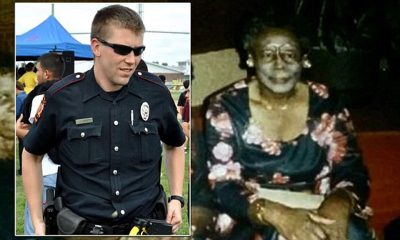
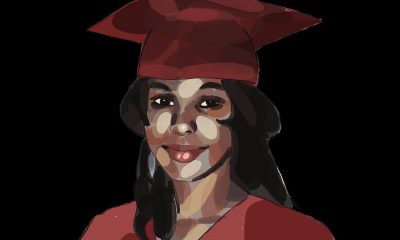
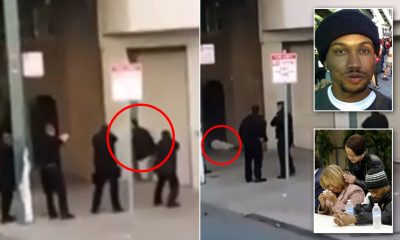
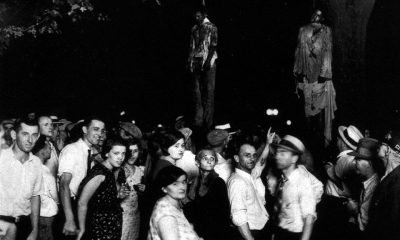
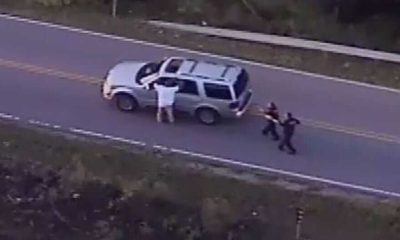
You must be logged in to post a comment Login